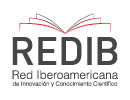The death of the pro-indigenous movement and the resurrection of the melancholy intellectual in La tumba del relámpago
DOI:
https://doi.org/10.21142/DES-1101-2019-133-146Keywords:
Scorza, Indigenism, Peruvian literature, Intellectual, La guerra silenciosaAbstract
In this article, I will analyze La tumba del relámpago, the last novel in the five-novel series La guerra silenciosa, by Manuel Scorza. I argue that this novel is not merely a continuation of the four other novels of the series, but rather a radical rewriting and reinterpretation of them, calling into question the ideological basis of the depiction in the other novels of the series of the conflict between peasants, landowners, and multinational corporations in Cerro de Pasco from the late 1950s onwards. I will focus on the gradual awakening of a political consciousness among the indigenous and mixed race population, the connections between the use of elements of indigenous myth and history/ historiography, and the relationship between the peasant movement and intellectuals. I maintain that, ultimately, the novel aims to reaffirm the political role of intellectuals in the peasant struggle and their importance within Peruvian society as a whole.
Downloads
Downloads
Published
Issue
Section
License

Esta obra está bajo una licencia http://creativecommons.org/licenses/by-nc-sa/4.0/

















